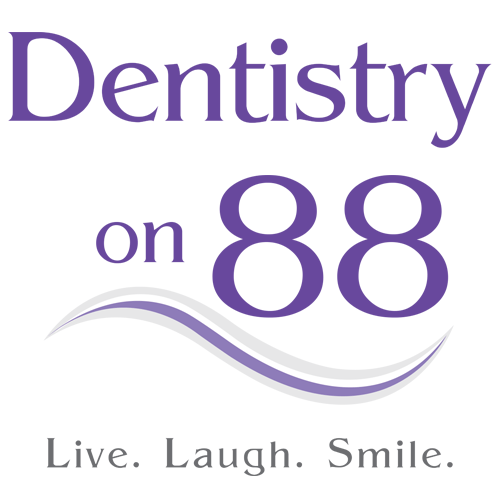Wisdom Tooth Extraction In Bradford, ON
Wisdom Tooth Extraction Services in Bradford, ON
While our wisdom teeth or molar teeth have served an important function in the past, our third molar teeth sometimes causes dental issues that require their extraction or removal. Learn more about the process.
What Are Wisdom Teeth?
Third molars, or wisdom teeth are the last adult teeth that erupt into the mouth. They normally begin erupting into the mouth between 17 to 21 years of age. While most people experience no issues with their wisdom teeth coming into their mouth, there are many cases where wisdom teeth encounter complications while coming into the mouth and jaw.
Wisdom Tooth Issues
Gum Inflammation
When wisdom teeth do not properly erupt, they can cause gum issues which results in bleeding, pain, swelling and redness. Sometimes a wisdom tooth may only partially erupt into the mouth, which makes it hard to keep the tooth and gums clean and free of food debris.
Increased Cavity Risk
Regular flossing and brushing is vital to good oral health. However, many patients find it hard to reach or access all the way to the back of their mouth to keep their third molar teeth clean and flossed.
Unpleasant Breath
Since it may be difficult to keep third molar teeth and gums clean, bacteria can easily grow in the affected area and produce bad breath or an unpleasant odour.
Damage To Surrounding Teeth
When certain wisdom teeth erupt into the mouth horizontally or diagonally, instead of vertically like they should normally erupt, risk of damage may occur to nearby teeth. It is also possible for serious dental issues such as tumours or cysts to form around affected wisdom teeth that are impacted or stuck under the gums.
Recovery and the Healing Process
Following removal, proper aftercare is essential for a smooth recovery. You may experience mild discomfort, swelling, or bleeding at the extraction site, which typically subsides within a few days. To support your recovery:
- Follow all post-operative instructions
- Apply ice packs to reduce swelling
- Eat soft foods and avoid hot beverages
- Keep the extraction site clean without disturbing it
Recovery varies from person to person, but most individuals fully heal within one to two weeks. Our team will monitor your progress and address any concerns you may have. If you experience severe pain, prolonged bleeding, or signs of infection, contact our office immediately.
Getting Started
Contact us today to schedule your visit, or free consultation now. We look forward to meeting with you and answering any questions or concerns you may have about wisdom teeth extraction or tooth extraction.
Check out our blog: "What To Expect If You Need To Get Your Wisdom Teeth Removed"
Request Appointment
Wisdom Tooth Extraction
Gentle, Effective Care for Impacted Wisdom Teeth
Wisdom teeth, also known as third molars, typically emerge during the late teens to early twenties. While they can be beneficial when properly aligned, they often become impacted due to limited space in the jaw. Impacted third molars can lead to complications such as tooth decay, gum disease, and damage to nearby teeth. At Dentistry on 88, your trusted Bradford family dentist, we specialize in assessing and addressing issues related to impacted wisdom teeth to maintain your oral health.
Understanding Impacted Wisdom Teeth
Impacted molars occur when these third molars do not have enough space to emerge or grow properly. This condition can result in pain, swelling, and infection. Left untreated, impacted wisdom teeth may harm surrounding teeth and increase the risk of dental problems. Recognizing the signs early is essential, especially during the late teens to early twenties when these molars typically emerge.
Common Signs of Impacted Molars Include:
- Swelling and tenderness in the back of the mouth
- Difficulty opening your mouth
- Bad breath or an unpleasant taste
- Gum inflammation near the impacted tooth
If you experience any of these symptoms, it's important to schedule a consultation with our dental team.
Why Do Wisdom Teeth Need to Be Removed?
Not everyone requires molar removal, but in many cases, extraction is necessary to prevent potential complications.
Common reasons include:
- Risk of tooth decay in hard-to-reach molars
- Development of gum disease around impacted molars
- Crowding or shifting of other teeth
- Pressure and damage to adjacent teeth
- Persistent pain and swelling
Additionally, impacted wisdom teeth may contribute to cyst formation or infection, which can compromise your dental well-being. Early assessment helps determine whether these molars need to be removed to preserve your overall oral health.
Maintaining Your Oral Health
Neglecting impacted molars can have lasting effects on your dental well-being. Proactive removal helps prevent complications such as tooth decay, gum disease, and damage to nearby teeth. Our goal is to preserve the health of your smile and promote long-term wellness.
We encourage you to maintain regular dental check-ups to monitor your oral health and ensure that no additional issues arise from remaining molars or other teeth.
How to Prepare for Wisdom Teeth Removal
Preparing for your molar removal can help ensure a smoother experience and recovery. Here are some helpful tips:
How to Prepare for Your Appointment
- Avoid eating or drinking at least 6–8 hours before your surgery if sedation will be used.
- Arrange for a family member or friend to drive you home afterward.
- Wear comfortable, loose-fitting clothing, and avoid makeup or jewelry.
- Inform your dentist about any medications you are currently taking.
- Plan for 1–2 days of rest and recovery at home.
Questions to Ask Your Dentist
- How many third molars will be removed?
- What type of anesthesia will be used?
- How long will the procedure take?
- What should I expect during recovery?
- What foods should I avoid after surgery?
Knowing what to expect and preparing in advance can ease anxiety and help you feel confident about your procedure.
The Wisdom Teeth Removal Procedure
At Dentistry on 88, we provide a comfortable and supportive environment for molar removal. The procedure involves:
- An initial consultation and examination
- X-rays to assess the position of the molars and their impact on surrounding teeth
- Local anesthesia to numb the extraction site
- Careful removal of the molars, often involving a small incision if they are impacted
Third molars are typically removed before they cause significant problems, often during the late teens or early twenties. Our team ensures that you are well-informed about the process and your treatment options.
A Typical Healing Timeline
Understanding what to expect after molar removal can help ease your recovery. Here is a general timeline:
Day 1-2:
- Swelling and mild discomfort are common.
- Bleeding may occur but should gradually subside.
- Follow a soft food diet and avoid strenuous activity.
Day 3-4:
- The swelling should begin to decrease.
- Bruising around the extraction site may appear.
- Continue to rinse gently with warm salt water.
Day 5-7:
- Significant improvement in discomfort and swelling.
- Soft foods can continue; slowly reintroduce solid foods as tolerated.
Week 2 and Beyond:
- Most patients fully recover by the second week.
- The extraction site will continue to heal and close naturally over time.
Potential Complications and How to Avoid Them
While molar removal is a common and safe procedure, understanding possible complications can help you prepare and take the right steps during your recovery. Some potential issues include:
Dry Socket:
This occurs when the blood clot at the extraction site becomes dislodged, exposing the bone and nerves. It can cause discomfort and delay healing. Avoid using straws, smoking, or vigorous rinsing to minimize the risk.
Infection:
Signs of infection include increased swelling, fever, or a foul taste in the mouth. If you notice these symptoms, contact our office promptly.
Nerve Injury:
Molar removal rarely affects nearby nerves, leading to temporary numbness or tingling in the lips, tongue, or chin. Our experienced team uses advanced imaging and techniques to reduce this risk.
Sinus Issues:
In upper molar extractions, there's a slight risk of sinus complications. Our team takes extra care during removal to minimize this risk.
Following our aftercare instructions and attending follow-up appointments will help ensure a smooth recovery and reduce the likelihood of complications.
The Role of Wisdom Teeth in Oral Health
Wisdom teeth once served an important function in our ancestors' lives. Early humans had larger jaws and diets that required heavy chewing of coarse foods like roots, nuts, and raw meat. Third molars provide the extra grinding power needed to break down these tough foods.
However, as human diets evolved and cooking methods softened food, our jaws became smaller over generations. This evolutionary change has left many people without enough space in their mouths to accommodate these molars properly. As a result, they often become impacted or misaligned or cause crowding.
Read More
While some individuals may never experience problems with their wisdom teeth, many others face oral health risks when these molars are left untreated. Impacted or partially erupted molars can trap food and bacteria, leading to decay, infection, or gum disease. They may also cause pressure on neighboring teeth, resulting in shifting or crowding.
Understanding the role of third molars in your oral health is essential. Removing them proactively helps prevent these complications and supports the long-term health of your smile.
Frequently Asked Questions About Wisdom Teeth Removal
How do I know if my wisdom teeth need to be removed?
If you are experiencing discomfort, swelling, or signs of infection in the back of your mouth, it may indicate that your impacted wisdom teeth need to be removed. An examination and x-rays by our dental team will help determine if removal is necessary.
What are the risks of not removing impacted wisdom teeth?
Leaving impacted wisdom teeth untreated can lead to infections, damage to surrounding teeth, cyst formation, and misalignment of other teeth. Proactive removal helps protect your overall oral health.
What can I expect during the healing process?
After removal, some swelling and discomfort are normal. Following our aftercare instructions will help promote a smooth recovery. Most patients heal completely within one to two weeks.
Schedule Your Consultation
If you're experiencing discomfort or have concerns about your molars, contact Dentistry on 88. Our experienced team is dedicated to providing compassionate care and effective treatment options to ensure your dental well-being. We'll guide you through your treatment options and help you determine if your impacted wisdom teeth need to be removed.
Call (647) 931-4937 or click the contact button.



